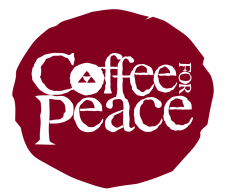Coffee for Peace
Coffee for Peace
Promoting Peace through Coffee.
BCTA MEMBERSHIP STATUS
Active
SECTOR
Agriculture, Food & Beverage
HEADQUARTERS
Philippines
REGION OF INITIATIVE
Asia & Pacific
SDG CONTRIBUTION
RELATED NEWS
Coffee for Peace is a social enterprise that works with indigenous people and rural poor in the Philippines to promote economic empowerment, peace and reconciliation, and environmental stewardship. They provide training to indigenous communities in conflict-ridden areas in Mindanao, the Cordillera region, and others. The trained farmers and communities eventually become suppliers of coffee cherries and coffee beans to Coffee for Peace. Through this initiative, communities that have long been caught up in conflict are given stable livelihood opportunities.
Coffee for Peace joined Business Call to Action (BCtA) with a commitment to train 500 conflict-affected farmers to receive certification in Good Agricultural Practices for coffee farming, increasing the number of farmers in its supply chain from 100 to 600 while tripling their incomes.
In 2008, Joji Pantoja and her husband Dann facilitated an informal conflict mediation in Mindanao, Philippines, between a migrant farmer and a neighbor from the host community. The two were threatening to kill each other over ownership of the rice field ready for harvest. Instead, they were invited for a dialogue over coffee. As a result of this successful mediation, other members of the community were brought together for coffee – and Coffee for Peace was born.
Coffee for Peace engages farming communities using the principles of peace and reconciliation – including advocacy and the promotion of active non-violence to resolve conflicts. In the process, the company is integrating people into its high-quality coffee value chain.
It starts by training farmers to grow and process quality coffee as well as resolve conflicts and other peacebuilding skills. Coffee for Peace then buys their beans at a fair price and exports them to the United States and Canada. Farmers are also encouraged to sell their beans to other traders: the training they receive from Coffee for Peace empowers them to negotiate with these traders in order to receive the best prices.
Recognized with several awards for its inclusive business model, Coffee for Peace has helped Philippine highland farmers to dramatically increase their incomes. As a result, many have begun sending their children to school and have built sturdier homes. They are also working side by side for the region’s prosperity and avoiding conflict – with each other and the Government.
Of the more than 600 farmers given training by Coffee for Peace, 100 have already been integrated into the company’s value chain. There are plans to train 500 more by 2021 and integrate all of these farmers into the company’s value chain – aiming for a total of 600 local farmers supplying the company within five years.
In order to provide a sustainable market for farmers’ beans, the company has established a coffee shop in which farming communities’ stories are shared with customers. As its inclusive model is scaled up, additional coffee shops will be opened to provide a direct market for farmers produce and to highlight the challenges they face.




